- Home
- Education and Support
- Education Support
Education Support
To establish the Tamagawa University Brain Science Institute as a global research center for integrative brain science, the university has continuously improved its research facilities and organization, drawing on generous physical and financial support.
- 1. Changes in educational organization
- Plans call for the Graduate School of Brain Information Science, as it is tentatively named, to be established in 2010. This school, independent of any other undergraduate or graduate schools on our campus, will accept graduate students and trainees (including those dispatched to receive guidance in research methods) from across the campus, as well as from off campus (including those already in the working world), whether their backgrounds lie in the humanities or sciences. This is the framework for interdisciplinary education at this cutting-edge research center.
- 2. Improving and developing research facilities and spaces
- In addition to the existing major research facilities (see pictures), the Research Center Building (housing the Research Institute and Brain Science Institute) was constructed in April 2008. This expanded research space provides graduate students and post-doctoral fellows with ample space for study and research. University Building No. 6, a new building completed in March 2009 as part of the College of Agriculture, provides state-of-the-art genetic experimental facilities.
- 3. Improving the research assistant system
- Financial support is available for outstanding graduate students selected to be research assistants. This support allows them to pursue research free of financial concerns.
- 4. Research grants for graduate students and post-doctoral fellows
- Graduate students and post-doctoral fellows are required to submit research proposals. Research grants will be provided based on the research program proposed.
- 5. Recruitment of post-doctoral fellows
- Post-doctoral fellows are recruited from across the world. Some will engage in international joint research with their counterparts at Caltech.
- 6. Global COE professors, associate professors, and assistant professors
- Post-doctoral fellows with a record of outstanding achievement are eligible for tenure-track faculty positions at Tamagawa University, based on assessments of their academic training and research activities. These positions allow scholars to pursue research from leadership positions.
- 7. Public outreach
- Various outreach activities, including summer programs, training courses, and open campus programs targeting undergraduate and graduate students, help promote Tamagawa University's Global COE Program to citizens outside the campus. Research findings are put to use in ways that benefit wider society through various events, including lectures for the general public and even for high school students or those younger.
Improvements of the Research Environment
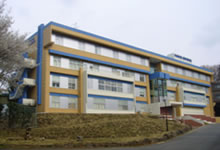 Construction of the Research Center Building (completed in 2008) |
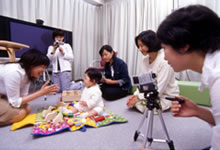 Facilities for developmental experiments |
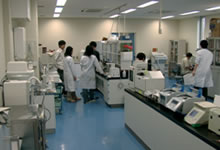 Facilities for genetic experiments |
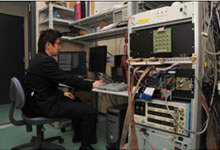 Facilities for animal experiments |
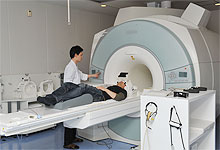 Introduction of fMRI |
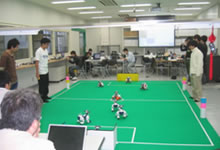 Facilities for robotic experiments |
Copyright © Tamagawa Academy & University 1996- All Rights Reserved.
